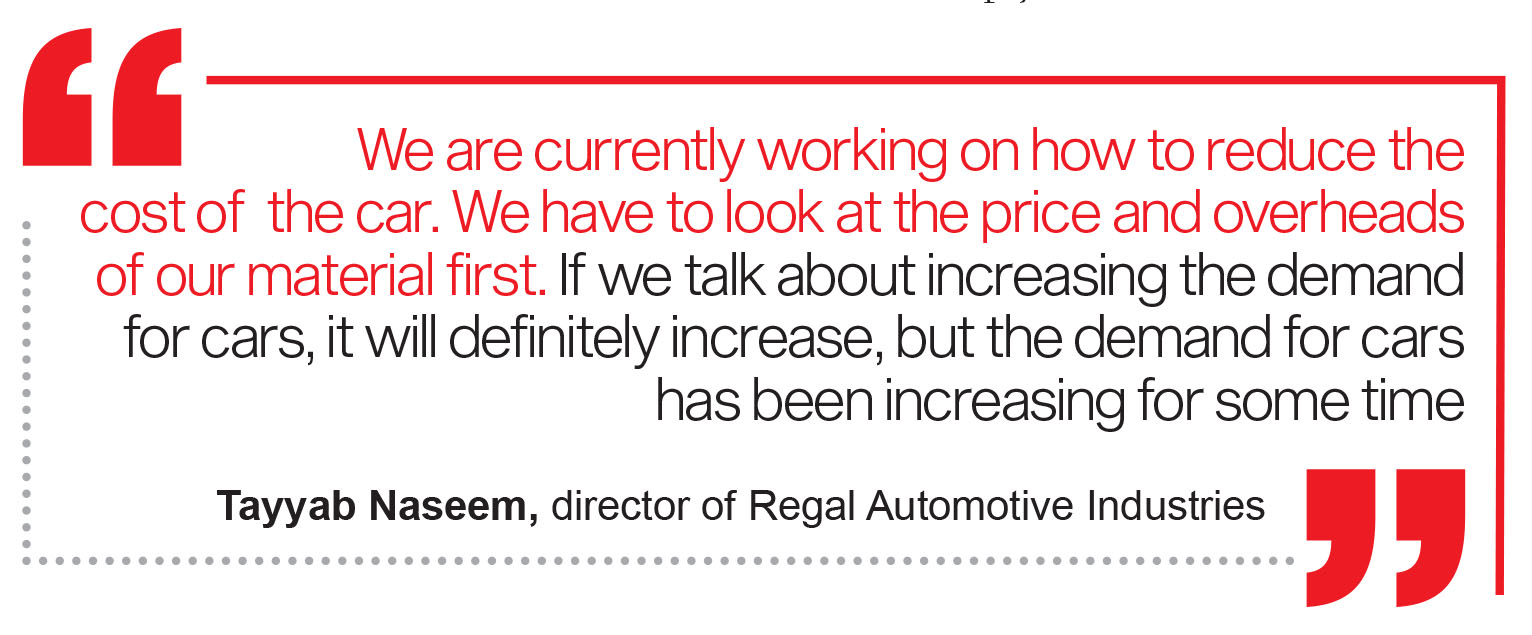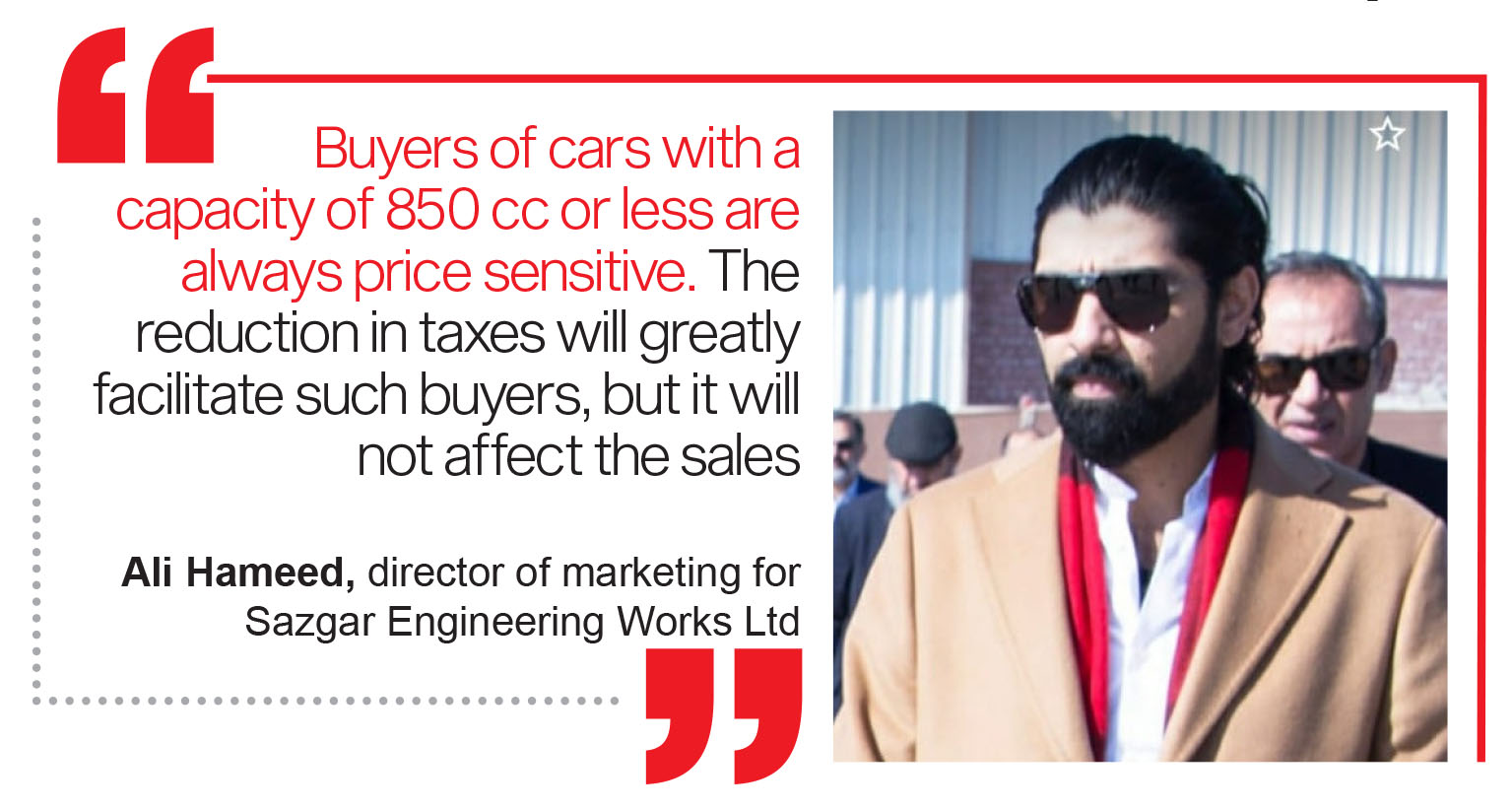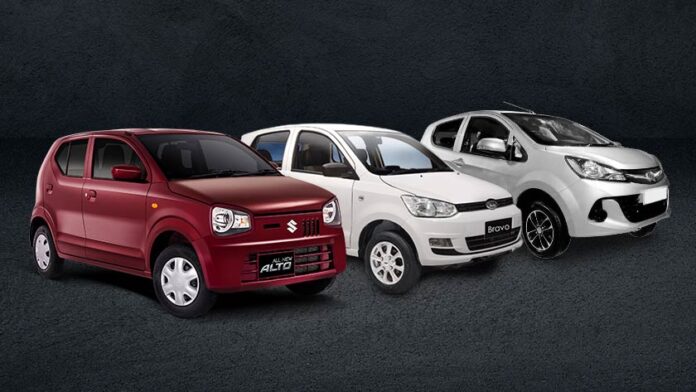For the longest time, the only 800cc car in Pakistan was the Suzuki Mehran. That timeless machine that launched millions of car enthusiasts either into an enraged frenzy or nostalgic murmurings. When it was first launched in 1989, the Suzuki Mehran was priced at Rs 90,000. By the time it was discontinued in March 2019, it was retailing at Rs 750,000. In a thirty year period.
The storied history of the Mehran can be told as the history of the automobile industry in Pakistan. And while that is a whirlwind in its own right, its discontinuation is promising. The Mehran was a tin-box of death on wheels with zero quality assurance whatsoever. With it gone, Suzuki has come out with the 650cc Suzuki Alto – an automatic car built on the model of the Japanese refurbished cars that have made such a dent in Pakistan’s automobile industry. It is a much safer vehicle with more features and comfort. It is also significantly more expensive.
However, for once, it is not just Suzuki or one of the Big Three (Suzuki, Honda, and Toyota) dominating the market. In the 800cc segment of cars, where there was once only the Suzuki Mehran in Pakistan, there are now new entrants. Pakistani motorcycle manufacturer, Road Prince, in partnership with a Chinese company, has recently introduced an 800cc Prince Pearl in Pakistan. Another manufacturer, United, has also introduced the 800cc United Bravo.
And this was all before the latest budget, which if it is any indication, might mean a boom in the manufacturing and sales of this category of car.
What does the budget change?
In the budget speech, the government has proposed a reduction in sales tax on vehicles up to 850 cc and abolition of FED (Federal Excise Duty). This, of course, has caused a few heads to turn. The proposed big cuts in taxes and duties will also reduce the prices of these vehicles. However, the problem is that none of these companies have yet announced the official price of the car at a lower price.

All these three vehicles are assembled entirely in Pakistan and according to the budget proposals, FED on them will be completely abolished while sales tax will be 12.5%. However, the benefits are not just for the local assemblers. A lot of cars in the 850cc category are also imported from Japan after being refurbished. These cars, often known as ‘Japani Alto’ include cars like the Mira and the Suzuki Hustler. Withholding tax on such imported vehicles has been abolished.
It is pertinent to mention here that 2.5 percent FED is levied on the production cost of each vehicle manufactured in the local factories, which will be abolished in case of approval from the National Assembly. If both proposals are approved, there is a good chance of a 7 percent reduction in the prices of 850 cc and lower power vehicles manufactured in Pakistan. The Suzuki Alto is currently priced between RS 1.2 million to RS 1.6 million depending on its variant, and if the budget proposals are approved, the price of the Alto is likely to fall by RS 84,000 to RS 132,000. Similarly, the average price of a Prince is RS 1.149 million, which will be reduced by about 80,000 after a 7 percent reduction. Bravo manufactured by United Company is priced at around RS 1.1 million in Pakistan, which is likely to be reduced by about RS 80,000.
Experts in the automobile sector believe that the reduction in taxes and duties will lead to a reduction in car prices, which will further strengthen the automotive sector. Ali Asghar, a small businessman from Faisalabad, was one of the many people that decided immediately that they would buy one of these cars when they heard the announcement in the federal budget speech that a proposal has been made to abolish FED (Federal Excise Duty) on vehicles up to 850 cc and the sales tax rate has also been reduced from 17 per cent to 12.5 per cent. However, his experience has been less than ideal.
“I was thinking of buying a car a little before the budget, but since the prices of cars are very high, my pocket was not allowing me to buy a brand new car. On the other hand, some car dealers in Lahore also advised me to not buy a car now as the budget may reduce the price of the cars. To my surprise, when I called a local assembler of 850cc cars to buy a new car, the representative of the company replied that the car was not available due to high demand and the company has not yet announced the final price of 850 cc. I was very disappointed and decided to buy a second hand car from the market but even in the market the price of the used car was higher than before. I came back without buying a car and kept thinking that the government has announced but where is the low priced car?” he informed.

An official of Pakistan Motor Dealers Association told Profit that proposals have been made to reduce taxes but our local assemblers do not have the capacity to meet the demand for vehicles. “If we look at the data available on the website of the Pakistan Automotive Manufacturers Association (PAMA), we can see that a total of 133,000 cars of 1300 cc, 1000 cc and below 1000cc during July 2020 to May 2021 were manufactured and during the same period, about 140,000 vehicles of the same category were sold. Similarly, from July 2020 to May 2021, the total production of vehicles from 1300 cc was less than 100,000 units. On the other hand, vehicles with a capacity of 1,000 cc and below had a total output of just over 40,000 units during the same period while a little more of 44,000 units have been sold and that’s about 8,000 units more than last fiscal year. From these statistics, it is very easy to estimate that the production of a car of 1000cc or less in the country is already low,” they said.
Structural problems
“We have assemblers here not manufacturers and this is the reason for low production. If we look at the past, we can see that Suzuki became Pak Suzuki in 1982. Similarly, in 1991 Toyota and in 1992 Honda set up assembly plants in Pakistan. According to the agreement, Suzuki was to transfer the technology to us five years after the agreement, but we still import and assemble car parts. We are not manufacturers. Local companies still have to be told separately for essential and basic amenities like airbags, which are also charged separately,” said the official.
These are some of the most pertinent structural problems that the automobile industry is subject to in Pakistan. The official added that on the one hand, the government has proposed to reduce the tax rate on vehicles and on the other hand, the demand for these vehicles will increase.“But in Pakistan, it takes one to six months from the time the car is booked to the time it reaches the customer. And if one wants to buy a car urgently, they have to pay a hefty fee in the form of the exploitative ‘on’ schemes that so many people run.”
“Waiting from booking to delivery has fostered a ‘on money’ or premium on car culture in the market. In ‘on’ culture, vehicles are booked by different investors and the vehicle booked by these investors is immediately handed over to the customers on payment of an extra amount. The majority of car buyers prefer to purchase directly from automobile manufacturers, which takes at least one to six months between booking and delivery to the buyer.”

The way this works is that car dealers make large bookings in advance with the assemblers in Pakistan. They agree to buy cars in a large quantity, sometimes even at a better price, and they wait 1-6 months to get these cars. Once they have received the order, they do not register the cars on their name. They simply wait for people to come to their dealership. Now, a person can go directly to Suzuki or Toyota or KIA and ask to book a car, but they will have to wait at least 6 months, and sometimes even longer than that. What these dealerships offer is the opportunity to pay cash and leave with a car. The only catch is the extra money you have to pay on top – the on price.
The past year has seen an increase in the trend of charging ‘on money’ or ‘premium’ in the sale and purchase of automobiles due to the decline in production capacity of automobile companies in the country. The echo of the increase in on money was also heard in the meeting of the federal cabinet on December 29 when several ministers mentioned the prices of vehicles manufactured in Pakistan and especially on money. In the same meeting, Prime Minister Imran Khan also directed the Federal Ministry of Industries and Commerce to prepare a report on the decline in production of automobile companies during 2020. However, car dealers claim that there are fewer cars in the market and more buyers, which is why the trend and rate of wool money has increased. Most dealers do not even give the buyer a proper receipt for the on-money. Dealers give the buyer a raw receipt that mentions items such as service charges. In fact, there are fewer new cars and more buyers in the market and everyone wants to get a car without any delay. Dealers consider premium money to be their only profit and say that the investment they have made is for business and profit only. Because dealers facilitate the buyer, they charge a premium.
The official further informed this scribe that like every year, this year too, before the budget, showroom owners have been offering to give a delay free car delivery in case of booking a car. “Every year the government is going to make decisions in the budget about the import of used cars, so every year a car assembler company in Pakistan gives the impression to the government that we are ready to give cars immediately, but in practice this does not happen. Even today, cars are not being sold in the market without on-money. The government has taken some steps to eradicate on-money culture but they are not enough. The new vehicles have been introduced by various companies, the price of which has not been announced yet, but their booking is currently underway. The federal government had consulted with stakeholders on vehicle policy before the budget and a budget proposal was sought. At present, the rate of on money for vehicles less than 1000cc in the market is at least RS 80,000 to RS 100,000, while the purchase of a large vehicle costs at least RS 200,000 in premiums. Now in a situation where the production of vehicles is low and the buyer has to pay a premium on the purchase of the vehicle, the price of the vehicle has not decreased. The reduction in taxes on car prices can only benefit if the on-money culture is eliminated and our companies manufacture cars in Pakistan instead of assembling them. Otherwise, no matter how much taxes are reduced, the dream of getting a car for the common man cannot be fulfilled,” he said.
What do the stakeholders say?
Ali Hameed, director of marketing for Sazgar Engineering Works Ltd, a car manufacturer in Pakistan, told Profit that although his company does not manufacture vehicles with a capacity of 850 cc or less, the reduction in taxes by the government will be very convenient for the common man. “Buyers of cars with a capacity of 850 cc or less are always price sensitive. The reduction in taxes will greatly facilitate such buyers, but it will not affect the sales. Because every manufacturer has a limited capacity to manufacture a car and obviously the increase in sales will only happen by increasing the capacity. Now it depends on the manufacturers whether they increase their production capacity keeping in view the demand,” he said.

Tayyab Naseem, director of Regal Automotive Industries, which manufactures Prince Pearl, speaking to Profit said it was too early to say whether the government’s decision would benefit the common man. “We are currently working on how to reduce the cost of the car. We have to look at the price and overheads of our material first. If we talk about increasing the demand for cars, it will definitely increase, but the demand for cars has been increasing for some time. The auto industry is boosting overall, but a final decision on car prices has not yet been made,” Naseer maintained.
Zawar Tahir of United Motors believes that tax relief was given by the government to the common man but not to the manufacturers. “But still it is very encouraging for the common man and in general the price of our car (United Bravo) is likely to be reduced by RS 70,000. There is no solution in the world to the problem of delay in supply and demand of vehicles. We assemble as many cars as we can get orders. Now, as soon as we get a car booking, it takes time to prepare,” he said.
“For example, you have to import a CKD of a car, then assemble it and then be able to go on the road. Now if a customer comes to us and wants to buy a car, we book his car and give him a time of four months. In the meantime, if the buyer wants to buy a car immediately, he can buy it from any dealer by paying premium money and we have nothing to do with all this. The import duties of parts of cars have not been reduced, meaning that this relief has been given to the common man and not to the manufacturer. Now, when it comes to sales, nothing can be said about it, but obviously sales will be affected. We have been getting queries since the budget in which people are asking what the difference in the price of the car is. We have not yet officially announced a reduction in the prices of vehicles as we have not yet received a notification from the FBR (Federal Board of Revenue). It will now be seen after the notification that the sales tax has been reduced by five per cent or the rate has been slightly reduced. As soon as the notification is received, the companies will announce the official prices.”
Suneel Munj, the chairman of PakWheels informed Profit that the prices of only cars under 850cc will reduce, which means the rates of Prince Pearl, United Bravo and Suzuki Alto will go down. “The buyers will get relief on bookings of these vehicles. Like new cars, only the sales of second-hand 850cc cars will be affected, however, the impact will not be the same. I think that the impact will be half compared to the new cars,” he said,
“For example, the prices will reduce from RS 70,000 to RS 113,000 hence, the prices of second-hand cars could reduce in the range of RS 30,000 to RS 60,000. The reduction in prices will impact the sales of these cars, rather they are already going good. It is a good decision by the government to reduce taxes, however, the government needs to be vigilant because in the long run, the car manufacturing companies may increase the base prices of these vehicles and bring it back to previous rates,” Munj said.

























